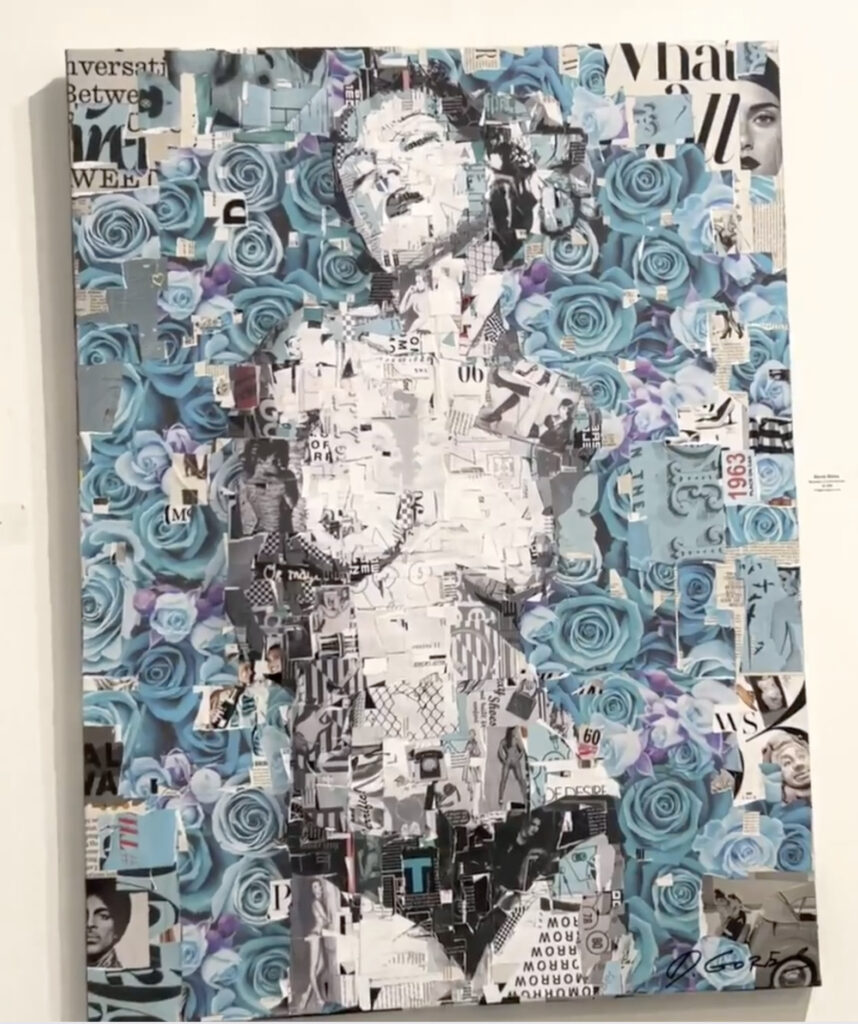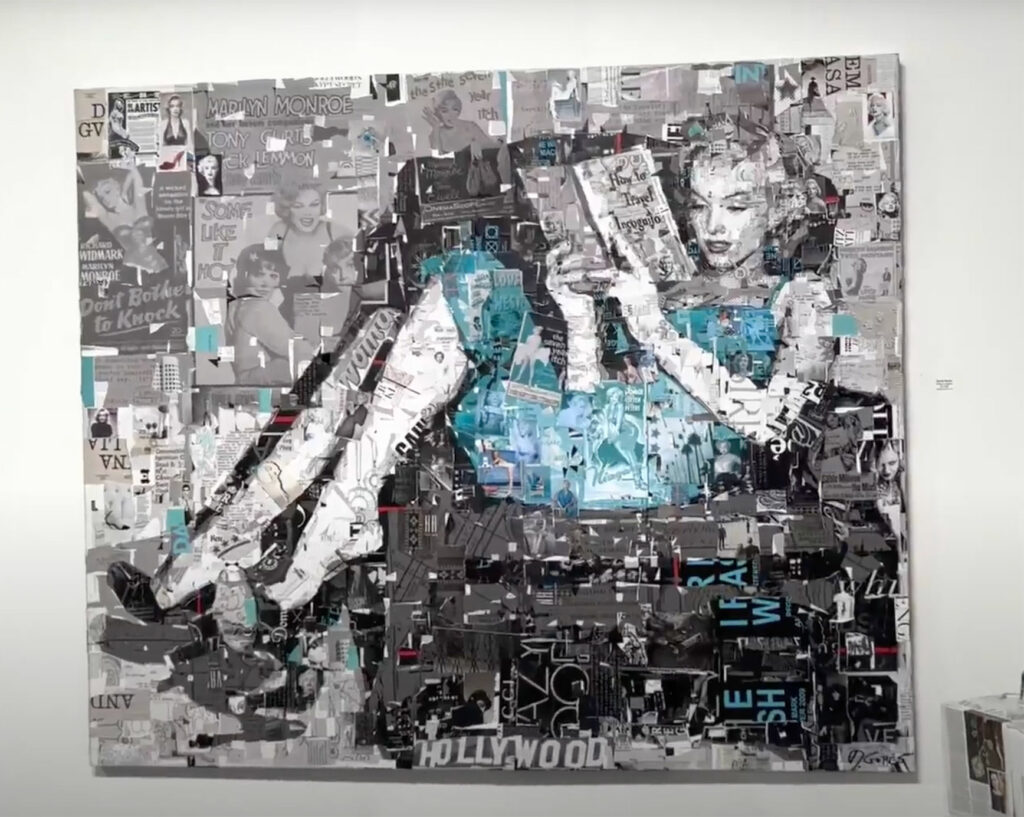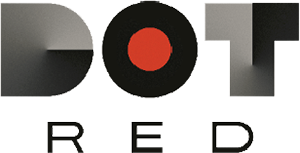Interview: Derek Gores


How do you identify your collage work over other artists that you have seen?
I’m after wanting it to be more than a still image. I want it to feel like elapsed time, I want it to feel like it triggers your memories. So maybe it shimmers and feels like more than just a frozen moment.
When you’re creating your collage work, what kind of messages are you trying to convey?
So the women in my art, even the one I’m showing, Marilyn for example, are in charge of their moments. They’re strong but are also fully dimensional. So I try to honor and never objectify the women in the artwork.
What has been your single greatest challenge as an artist?
But in a way, it’s always pressing forward and keeping it personal. And digging deeper, personally. You’re never satisfied. I think even if there’s a success, it just unlocks the next question. So it’s a craving, and that can be a hard feeling. It’s exhausting, thrilling. But I’ve got to keep going, gotta keep ripping, you know? That’s the best I know.

When choosing the exhibiting, do you prefer exhibiting yourself or working with representation?
But I’ve gotten to where I am now; currently building a team. You know, I just made my first full-time hire as a Director of Operations for my own collage incorporated essentially. And the fella just dropped off lunch, he’s here to help dismantle the show afterward.
So there’s that. We can do anything, but we can’t do everything. So I want to do more of the making, and the creating and the curating. I have another booth with some friends I curated in this show.
So it is helpful and lovely to have representation when you can find the right person who cares about it.
Explain how your collage work involves more than four corners, it involves dimension and space. Get me into the mindset of how you create with all these elements in mind.
So most of my pieces have some kind of a depth play to it. Some illusion, something that you think is in the background, but it jumps out. Or you’ll notice some of the top layers are for the background. So I’m always looking for those twists.
Like if I were to take this ad here and rip it out, so now we see the bags. I could use this piece here to help define Marilyn’s leg. And I enjoy that it’s both her legs, but also it could be the big bags.
And I want that leap to happen of what you thought was the scale, and then it changes once you get up-close. It feels a little bit like a pleasant vertigo, pleasant sensory thing. That’s the kind of stuff that I’m looking at.
And here on the other side, something like that could make her elbow come out. And then before you know it, we’ve got some words that we weren’t expecting.
I’m always being open to the possibilities of what these scraps can add to the story. It ends up feeling kind of like a visual poem, where we can make associations from piece to piece. And you’d see them differently every day, your senses would combine a little differently every day.
This could also be used up here to form some of her hair. That’s kind of how I work, I pick up a piece at a time and it could go anywhere on there. Wherever it’s going to be the most interesting, like contribute to her form, but just enough surprise where your mind has to fight with it.
I like to think of it as kind of like the difference between what you do see, and what you think you see. It’s my psychedelic, art is my psychedelic.
Website: derekgores.com
IG: @derekgores


